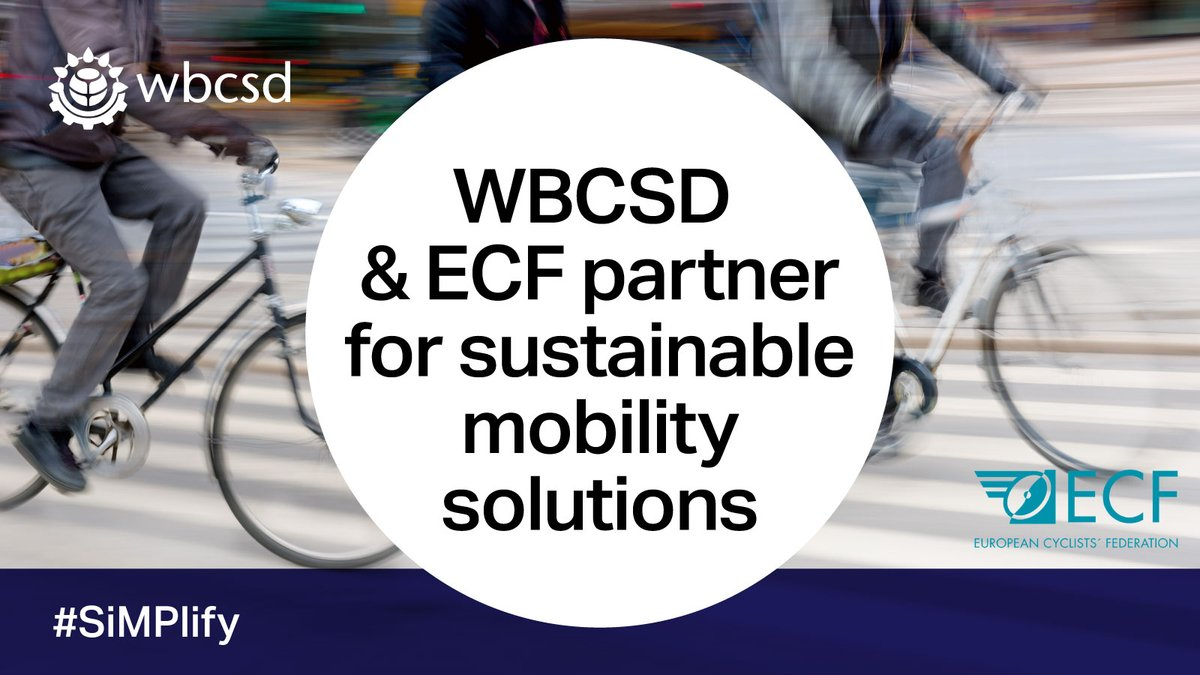
ECF and WBCSD (World Business Council for Sustainable Development) announce partnership to deliver sustainable urban mobility solutions
The European Cyclists’ Federation (ECF) and the World Business Council for Sustainable Development (WBCSD) announce their partnership on SiMPlify, WBCSD’s Sustainable Urban Mobility project.
ECF and WBCSD will engage cities in Europe to develop comprehensive sustainable urban mobility plans based on a fact-based and holistic approach. To this end, ECF endorses WBCSD’s sustainable mobility indicators and multi-stakeholder engagement methodology and will provide support to a number of European cities in deploying WBCSD’s approach. ECF has helped to optimize the cycling-related indicators by updating WBCSD’s mobility tool to ensure that cycling safety is measured based on exposure data. ECF will continue to work with WBCSD to bring the cyclists perspective towards improving mobility in cities in Europe and beyond.
ECF Advocacy Director Ádám Bodor made the following statement on the cooperation:
“Working with WBCSD in the framework of SiMPlify gives us an excellent opportunity to contribute to this global project with our expertise on cycling and to show the potential of cycling as an integral part of today’s sustainable mobility solutions to cities around the world”
Formerly known as SMP2.0, SiMPlify was launched by WBCSD to tackle the challenges of sustainable urban mobility. SiMPlify is a data-driven, multi-stakeholder approach that helps cities accelerate progress towards multimodal, inclusive and low-environmental impact mobility. The methodology offers an integrated solutions portfolio based on global best practice, including cycling. Solutions match a city’s priorities; advance decision making and help cities to respond to implementation challenges.
With nineteen indicators identified to describe sustainable mobility in urban areas, the SiMPlify process has been tested in a range of cities as a basis for mobility plans tailored to specific characteristics and objectives. As such, SiMPlify has experienced success across six pilot cities: Bangkok (Thailand), Campinas (Brazil), Chengdu (China), Hamburg (Germany), Lisbon (Portugal) and Indore (India). In 2016, the European Commission endorsed its indicators and has deployed support for 55 cities in Europe to use the SiMPlify approach in their sustainable urban mobility planning.
In 2018- 2019, SiMPlify will be deployed in 50 cities in Europe to support the development of sustainable urban mobility plans. While the indicators aren’t focused specifically on cycling, they do look at infrastructure, access to bike sharing and cycling safety, thus allowing for tailor-made city mobility plans to take into account the needs of cyclists.
Contact the author
Recent news!
Upcoming events
Contact Us
Avenue des Arts, 7-8
Postal address: Rue de la Charité, 22
1210 Brussels, Belgium









